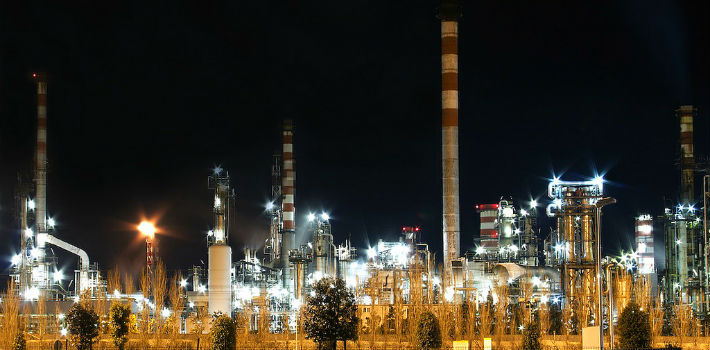
In the face of the obsessive and widespread belief that the state can plan for everything, making deliberate and meticulously prepared decisions, reality shows us quite the opposite.
The clearest example of this is the recent history of the global energy sector. Since the creation of the Organization of the Petroleum Exporting Countries (OPEC) in the 1970s, this body has attempted to set global petrol prices at will. At least at the outset, these state players did manage to hold the market to ransom — as was evident in the oil crisis of 1973.
However, their fortunes soon became more complicated. After a temporary increase in income from the sale of petroleum, the majority of undeveloped countries — petroleum exporters and otherwise — fell victim to the economic crisis of the 1980s.
The same thing is happening now, although with more dramatic implications.
From the year 2000 onwards, oil prices began to increase, almost reaching levels of around US$150 per barrel. Producing countries like Venezuela rode the wave and thought this situation could go on forever.
On the international level, many thought that the United States, due to its dependence on imported petroleum, could neither maintain its global predominance nor its level of economic development. As a consequence, conspiracy theorists explained any misguided foreign policy of the United States as a reflection of the nation’s need to “control” foreign oil reserves, to later bring them into her own hands.
At the same time, many argued that the rising petrol prices were not due to the intervention of the so-called OPEC cartel. Rather, they were thanks to a long-feared exhaustion of the resource, which provoked plenty of interest but conflicting reactions from international environmentalists.
Meanwhile, without the planning of any state and without any conscious decisions taken by any local or international body, thousands of individuals in different places around the world began to explore alternatives to resolve the higher cost of petroleum. From this process sprang up, principally in the United States, the extraction of petroleum through hydraulic fracturing — otherwise known as fracking.
Thus, after almost 15 years of rising petrol prices, we find ourselves in a completely different situation: the United States is no longer a net importer of this resource. Instead, it’s nearing self-sufficiency, and is set to become a future exporter of petroleum. From a presumed scarcity of oil, estimates of global reserves have grown — and, as a result, prices have begun to steadily fall.
No one knows how low prices will go. But without doubt they’ll continue to come down, especially thanks to a recent OPEC decision not to lower production quotas. This choice seems to have been prompted by a geopolitical duel between the Arab states and US producers over who can endure selling at the lowest prices.
Rather than applaud these recent developments, however, many now yearn for the previous situation — predictions of imminent catastrophe and all. Now it’s no longer the big petrol companies of the past being criticized, but the small local producers that have sprung up in the United States. Nostalgia is widespread for high prices, and plentiful petroleum is viewed as a threat. Fracking has generated unexpectedly fierce opposition from the international environmental movement.
What’s more, the prevailing myths of the United States haven’t changed, even though they have moved from being an oil importer to being almost self-sufficient. The latest popular paranoia is that US authorities made a deliberate decision to start fracking and increase production to finish off hostile regimes in Venezuela, Russia, and Iran.
Few pause to consider whether the threat posed to these countries is on account to their own mistakes, in misspending transitory oil wealth over more than a decade. The United States, as ever, is to blame.
As a result, instead of taking advantage of this situation to recognize that it’s individual, spontaneous, and small-scale actions around the world that drive global change, the issue has become politicized, and a solution sought through state activity yet again.
Rather than recognizing that farcical institutions like OPEC should finally disappear, people now worry about the situations facing fiscally irresponsible states like Russia, Iran, and Venezuela. This insistence that everything can be and must be controlled ignores the strength of the spontaneous.
Translated by Laurie Blair. Edited by Fergus Hodgson.
 Versión Español
Versión Español












